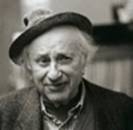LOOSENING POT LAWS MORE POPULAR THAN OBAMA
In 8 of the 10 initiatives, drug reform got a higher percentage than did Obama!!!
NORML – Millions of Americans cast votes Tuesday in favor of marijuana law reform, approving nine out of ten ballot measures seeking to liberalize penalties on cannabis use and possession.
In Massachusetts, 65 percent of voters approved Question 2, which replaces criminal penalties for the possession of up to one ounce of marijuana (punishable by up to six-months in jail and a $500 fine) with a civil fine of no more than $100. More than 1.9 million Massachusetts voters (and all but three cities) backed the measure – a greater total than the number of voters who endorsed President Elect Barack Obama (1.88 million). Question 2 is expected to become law within 30 days – making Massachusetts the thirteenth state to decriminalize the personal use and possession of cannabis. However, opponents of the measure – which include the state’s governor, attorney general, and all twelve state district attorneys – note that lawmakers still have the legal option to amend or repeal the new law.
In Michigan, 63 percent of voters approved Proposal 1, which legalizes the physician-supervised use and cultivation of medicinal cannabis by state-authorized patients. More than 3 million voters endorsed the measure, which received approximately 150,000 more votes in Michigan than did Obama. Proposal 1 goes into effect on December 4th, at which time nearly one-quarter of the US population will live in a state that authorizes the legal use of medical cannabis.
Thousands of voters in various municipalities also backed local ballot initiatives supportive of marijuana law reform. In Arkansas, 66 percent of Fayetteville (population: 67,000) voters approved Question 16, which directs law enforcement to make activities related to the investigation and prosecution of adults who possess up to one ounce of marijuana their lowest priority.
In Hawaii, Big Island (population: 172,000) voters approved a similar initiative, which directs law enforcement to make activities related to the investigation and arrest of adults who possess up to 24 ounces of cannabis and/or 24 plants their lowest priority. The measure, which voters backed by nearly a 3 to 2 margin, also forbids the County Council from accepting government funding to promote federal marijuana eradication efforts on the Big Island.
In Massachusetts, voters in four state House districts (encompassing 15 towns) passed nonbinding public policy questions directing each district’s state representative to vote in favor of legislation to legalize the medical use of cannabis. More than 70 percent of voters in each district backed the measures.
Finally, voters in Berkeley, California endorsed Measure JJ, which eliminates local limits on the quantity of medicinal cannabis that may be possessed by patients, and liberalizes municipal zoning guidelines for patient dispensaries.
By contrast, California voters rejected a statewide sentencing reform measure (Proposition 5), which sought expand the diversion of non-violent offenders to drug treatment and would have decreased minor marijuana penalties to a non-criminal infraction. Numerous politicians, including Republican Governor Arnold Schwarzenegger and Democrat US Senator Dianne Feinstein, joined forces with law enforcement and the California Beer and Beverage Distributors to lobby against the measure, which gained just 40 percent of the vote.




























